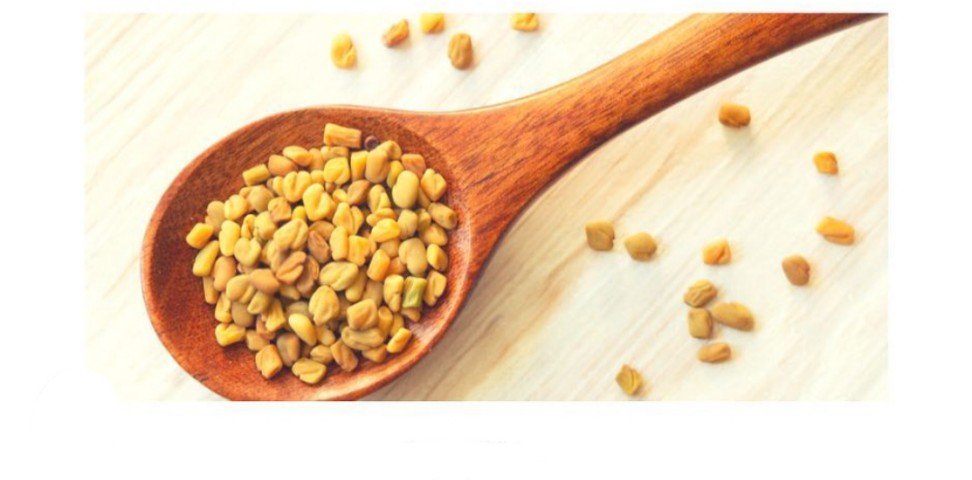Are you in pursuit of a healthy and flavorful ingredient to elevate your culinary adventures? Look no further than Uluva, the unsung hero of Indian spices! In this article, we’ll delve into the fascinating world of Uluva, explore its various benefits, and offer creative ways to incorporate it into your daily life.
Uluva in English
In the southern Indian state , “uluva” refers to fenugreek. So, in English, “uluva” translates to “fenugreek.”
What is Uluva?

Uluva, commonly known as fenugreek, is a versatile and aromatic herb that has been cherished for its culinary and medicinal properties for centuries. Let’s uncover the secrets of this remarkable spice.
What Are The Benefits of Uluva Water?


Uluva water, created by soaking fenugreek seeds in water overnight, is a natural elixir that offers a plethora of health advantages:
- Digestive Health: Uluva water is renowned for its digestive benefits. It contains soluble fiber, which aids in softening the stool and preventing constipation. This natural laxative effect promotes regular bowel movements, alleviates bloating, and eases indigestion.
- Blood Sugar Regulation: For individuals grappling with diabetes or those concerned about blood sugar levels, uluva water can be a valuable addition to their routine. Fenugreek seeds contain compounds that improve insulin sensitivity, potentially helping to manage blood sugar levels more effectively.
- Weight Management: If you’re on a weight management journey, uluva water can be a supportive tool. The soluble fiber creates a sensation of fullness, curbing appetite and reducing calorie intake. This can assist in maintaining a healthy weight.
- Heart Health: Fenugreek water contributes to heart health by helping to lower levels of LDL (bad) cholesterol and triglycerides. Additionally, its antioxidant properties protect the cardiovascular system from oxidative stress, reducing the risk of heart disease.
- Lactation Support: For nursing mothers, uluva water has a long history of use as a natural lactation booster. It is believed to increase milk production, ensuring a sufficient milk supply for the baby.
- Anti-Inflammatory Effects: Fenugreek seeds, the key ingredient in uluva water, possess anti-inflammatory properties. These properties can provide relief from conditions such as arthritis, reducing joint pain and inflammation.
- Respiratory Health: Individuals with respiratory issues, such as asthma or bronchitis, may benefit from fenugreek water. Its anti-inflammatory and expectorant properties can help alleviate symptoms and improve breathing.
- Skin and Hair Benefits: When used topically or consumed, uluva water promotes healthy skin and hair. It is commonly included in hair masks and face packs to stimulate hair growth and maintain radiant skin.
- Menstrual Comfort: Some women find relief from menstrual discomfort, including cramps and bloating, through the regular consumption of fenugreek water. It has hormone-regulating properties that can ease menstrual symptoms.
- Antioxidant Protection: Rich in antioxidants, fenugreek water fights against free radicals in the body. This reduces oxidative stress and lowers the risk of chronic diseases, including cancer and heart disease.
To prepare fenugreek water, simply soak a teaspoon of fenugreek seeds in a glass of water overnight. In the morning, strain the water and consume it on an empty stomach. While fenugreek water offers numerous health benefits, it is advisable to use it in moderation and consult with a healthcare professional if you have specific health concerns or conditions.
Comprehensive Health Benefits of Uluva


Uluva, also known as fenugreek, is a spice renowned not only for its culinary uses but also for its diverse range of health benefits. Here’s a detailed exploration of how fenugreek can positively impact various aspects of your well-being:
- Digestive Health: Uluva is a digestive champion. Its soluble fiber content helps in softening and bulking up the stool, making it an effective natural remedy for constipation. It also acts as a mild laxative, promoting regular bowel movements and preventing indigestion.
- Blood Sugar Control: For individuals with diabetes or those at risk of developing it, fenugreek can be a valuable addition to their diet. Research suggests that the compounds in fenugreek can improve insulin sensitivity, regulate blood sugar levels, and reduce insulin resistance. This makes it a potential ally in managing diabetes.
- Heart Health: The fiber in Uluva can help lower levels of LDL (bad) cholesterol and triglycerides in the blood, reducing the risk of heart disease. Moreover, its antioxidant properties can protect the cardiovascular system from oxidative damage, promoting overall heart health.
- Weight Management: The soluble fiber in fenugreek creates a feeling of fullness and satiety, which can curb appetite and reduce calorie intake. This can be particularly helpful for those looking to manage their weight and make healthier food choices.
- Anti-Inflammatory Properties: Uluva contains compounds with anti-inflammatory properties, which can provide relief to individuals suffering from inflammatory conditions such as arthritis. It can help reduce joint pain and discomfort.
- Enhanced Lactation: For new mothers, fenugreek has been traditionally used to support lactation and boost milk production. It’s a natural galactagogue that can help ensure an adequate milk supply during breastfeeding.
- Skin and Hair Health: When applied topically, fenugreek can work wonders for your skin and hair. It’s a common ingredient in hair masks and face packs due to its potential to stimulate hair growth and maintain healthy, glowing skin.
- Respiratory Health: Uluva has been used to alleviate respiratory issues like asthma and bronchitis. Its anti-inflammatory and expectorant properties may help ease breathing difficulties and reduce congestion.
- Menstrual Comfort: Some women find relief from menstrual discomfort, including cramps and bloating, by incorporating fenugreek into their diets. It can help regulate hormonal imbalances and provide relief during menstruation.
- Antioxidant Benefits: Uluva is rich in antioxidants, which combat free radicals in the body. This not only reduces oxidative stress but also lowers the risk of chronic diseases such as cancer and heart disease.
While fenugreek offers an array of health benefits, it’s essential to use it in moderation, especially if you are pregnant, nursing, or have underlying health conditions. Consulting with a healthcare professional before making significant dietary changes is advisable to ensure it aligns with your specific health needs.
what is the best way to consume uluva?
Consuming uluva, or fenugreek, can be enjoyable and beneficial when done in the right way.
Uluva Seeds
Uluva seeds are the most common form of consumption and can be used in several ways:
- As a Spice: Roasting whole uluva seeds and then grinding them is a popular method. This results in uluva powder, a flavorful spice widely used in Indian cuisine. It adds a distinct aroma and taste to dishes like curries, pickles, and spice blends.
- Sprouted Uluva: To create uluva sprouts, soak the seeds overnight and then rinse and drain them for a few days until they sprout. These sprouts are highly nutritious and can be added to salads, sandwiches, or used as a garnish for various dishes. They contribute a crunchy texture and a slightly nutty flavor.
- Uluva Leaves: Fresh uluva leaves, while less commonly used than the seeds, are edible and nutritious. They can be used as a flavor enhancer in soups, stews, and salads. These leaves offer a mild, nutty taste and are a good source of essential nutrients.
Uluva Water
Soak and Drink: Soak approximately a teaspoon of uluva seeds in a glass of water overnight. The following morning, strain the water and consume it on an empty stomach. This traditional practice can aid digestion, assist in blood sugar regulation, and support weight management.
Uluva Supplements
For those seeking a more convenient option, uluva supplements are available in various forms, including capsules, powders, and extracts. These supplements provide a standardized dose of fenugreek and are often used for specific health goals, such as enhancing lactation or controlling blood sugar levels. It’s essential to consult with a healthcare professional before taking supplements, particularly if you are on medication or have underlying health conditions.
Uluva Tea
Uluva tea is made by steeping fenugreek seeds or leaves in hot water. This tea offers a milder flavor compared to consuming the seeds directly. You can customize it with honey or lemon for added taste. It’s a soothing and healthful option.
Uluva Oil
Uluva oil is intended for topical use and should not be ingested. It’s commonly applied to the scalp to stimulate hair growth and strengthen hair. Additionally, it’s used in massage oils and skin care products.
Uluva Powder
Ground uluva seeds can be conveniently added to various recipes. Consider incorporating them into smoothies, oatmeal, yogurt, or baked goods. This is an excellent way to introduce the spice into your daily diet and enjoy its health benefits.
Uluva Leaves in Cooking
In Indian cuisine, fenugreek leaves are occasionally used to impart flavor to dishes. They can be sautéed along with other ingredients or used as a garnish to enhance the aroma and taste of various preparations.
Uluva Sprouts
Uluva sprouts offer a fresh and crunchy texture. They can be utilized in sandwiches, wraps, or as an ingredient in salads. The sprouts not only add a delightful crunch but also provide a mild, nutty flavor.
When incorporating fenugreek into your diet, it’s important to exercise moderation, especially if you’re new to it. Excessive consumption can lead to digestive discomfort or other side effects. Start with small quantities and gradually increase as needed. If you have specific health concerns or conditions, it’s advisable to consult with a healthcare professional before making significant dietary changes or using fenugreek as a supplement.
The Nutritional Goodness of Uluva
Uluva, commonly known as fenugreek, is not just a culinary delight but also a treasure trove of essential nutrients that can greatly benefit your health. Here’s a closer look at the nutritional profile of this incredible spice:
- Protein: Fenugreek is surprisingly rich in protein, making it a valuable addition to vegetarian and vegan diets. Protein is essential for muscle repair, immune function, and overall growth.
- Fiber: High in dietary fiber, fenugreek aids digestion and helps maintain a healthy digestive tract. It can alleviate common gastrointestinal issues like indigestion and constipation.
- Iron: Iron is crucial for the production of hemoglobin, which carries oxygen throughout the body. fenugreek is a great source of iron, making it beneficial for those prone to anemia.
- Magnesium: Uluva is rich in magnesium, a mineral that plays a role in over 300 biochemical reactions in the body. It supports muscle and nerve function, bone health, and blood glucose control.
- Manganese: Manganese is essential for the metabolism of amino acids, carbohydrates, and cholesterol. fenugreek provides a significant amount of this vital nutrient.
- Vitamins: fenugreek contains a variety of essential vitamins, including vitamin A, vitamin C, and several B vitamins. These vitamins contribute to overall health and well-being.
- Antioxidants: Antioxidants in fenugreek help combat free radicals in the body, reducing oxidative stress and lowering the risk of chronic diseases.
- Phytonutrients: Fenugreek is rich in phytonutrients like flavonoids and saponins, which have anti-inflammatory and antioxidant properties, further enhancing its health benefits.
Incorporating fenugreek into your diet can provide a significant boost of these essential nutrients, contributing to your overall health and well-being. Whether you choose to use it in your cooking or as a dietary supplement, fenugreek is a nutritional powerhouse worth exploring.
Comprehensive Side Effects of Taking Uluva
While uluva offers numerous health benefits, it’s important to be aware of potential side effects, especially when consumed excessively or in certain circumstances:
- Digestive Issues: Uluva is rich in fiber, which is beneficial for digestion in moderate amounts. However, excessive consumption can lead to digestive discomfort, including diarrhea, gas, and bloating. It’s crucial to use fenugreek in moderation to avoid these issues.
- Allergic Reactions: Some individuals may have allergies to fenugreek. Allergic reactions can range from mild to severe and may include symptoms such as skin rashes, itching, swelling (especially of the face and throat), and difficulty breathing. If you experience any allergic symptoms after consuming fenugreek, seek immediate medical attention.
- Low Blood Sugar (Hypoglycemia): Uluva has the potential to lower blood sugar levels, which can be advantageous for individuals with diabetes. However, when taken in excessive amounts or combined with diabetes medications, it may lead to low blood sugar (hypoglycemia). Symptoms can include dizziness, sweating, confusion, and irritability. If you have diabetes, consult your healthcare provider to determine the appropriate dosage and monitor your blood sugar levels carefully.
- Interaction with Medications: Fenugreek may interact with certain medications, affecting their effectiveness or causing adverse reactions. This is particularly relevant for blood thinners (anticoagulants) and diabetes medications. The combination of fenugreek with these drugs can enhance their effects, potentially leading to bleeding issues or low blood sugar. If you are on medication, it’s essential to consult your healthcare provider before incorporating fenugreek into your diet.
- Gastrointestinal Discomfort in Pregnancy: Pregnant women should use uluva cautiously, especially in high amounts. It contains compounds that may stimulate uterine contractions, potentially leading to gastrointestinal discomfort and, in extreme cases, uterine contractions. It’s advisable for pregnant women to consult their healthcare provider before using fenugreek as a supplement.
- Maple Syrup Odor: A curious but harmless side effect of fenugreek consumption is the potential to develop a sweet, maple syrup-like odor in sweat, urine, or breast milk. While this may not be harmful, it can be surprising to some individuals.
- Kidney and Liver Issues: In rare instances, excessive uluva consumption has been associated with kidney and liver problems. These cases are infrequent and often involve the consumption of very high doses of fenugreek supplements. Nevertheless, it’s important to use uluva in moderation and consult a healthcare professional if you have concerns about your kidney or liver health.
- Hypotension: For some individuals, fenugreek may lead to a drop in blood pressure (hypotension), resulting in symptoms like dizziness or fainting. If you experience these symptoms after consuming fenugreek , it’s advisable to discontinue use and consult with a healthcare provider.
In summary, while fenugreek is generally considered safe for most people when used in moderation, these potential side effects emphasize the importance of responsible consumption. If you have underlying health conditions, allergies, or specific concerns, it’s wise to seek guidance from a healthcare professional before incorporating uluva into your diet or supplement regimen.
Conclusion
In conclusion, Uluva, or fenugreek, is a remarkable herb that offers a plethora of health benefits and culinary possibilities. By incorporating fenugreek into your daily life, you can experience its magic firsthand.
Frequently Asked Questions
How do I store fenugreek seeds properly?
To maintain their freshness, store fenugreek seeds in an airtight container in a cool, dark place.
Can Uluva be used in desserts?
Yes, Uluva can add a unique flavor to desserts like halwa and sweets.
Is fenugreek safe for pregnant women?
Pregnant women should consume fenugreek in moderation, as it may stimulate uterine contractions.
Are there any side effects of consuming Uluva?
When consumed in excessive amounts, Uluva can lead to digestive discomfort. It’s best to use it in moderation.
Where can I purchase high-quality fenugreek seeds?
You can find fenugreek seeds at your local spice store or purchase them online from reputable sources.





